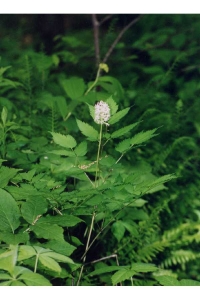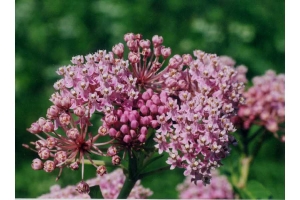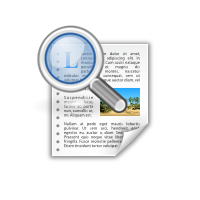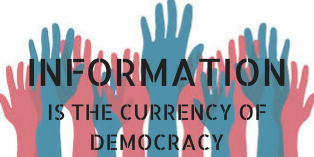Managing College
![]() Resources to help you navigate the college experience, manage time and deal with the stress and anxiety that accompanies busy students' lives.
Resources to help you navigate the college experience, manage time and deal with the stress and anxiety that accompanies busy students' lives.
The College Experience
College Knowledge for the Community College Student by David Schoem and Lynn Dunlap
LB2343.32 .S34 2011
A road map and tour guide for a successful community college experience and education.
The Community College Experience by Amy Baldwin
LB2343.32 .B24 2013
Covers a range of topics from making the transition into college culture, to practicing active learning and study skills, and preparing for a degree and a career.
The Freshman Survival Guide : Soulful Advice for Studying, Socializing, and Everything in Between by Nora Bradbury-Haehl and Bill McGarvey
LB2343.32 .F74 2011
Tools and accumulated wisdom of hundreds of students, administrators, professors, counselors, and campus ministers to help you take advantage of the options in front of you and make good decisions in the years ahead
College Rules! : How to Study, Survive, and Succeed in College by Sherrie Nist-Olenjnik and Jodi Patrick Holschuh
LB2343.32 .N57 2011
A college survival primer by two college professors shares essential advice and strategies on topics ranging from stress management and test preparation to staying motivated and balancing academics with a social life
Managing Time
Get Organized by Ron Fry
LB1049 .F735 2012
Shows you how to create your ideal study environment by using simple time-management tips to develop to-do lists, daily schedules, monthly calendars, and project boards.
The Time Diet : time management for college survival
by Emily Schwartz
LB2395.4 S35 2012
The Time Diet helps students lead productive, stress-free college lives by helping them classify their activities into "food groups" and choose a "balanced diet" of tasks each day.
Attack Your Day! : Before it Attacks You by Mark Woods and Trapper Woods
HD69.T54 W672 2013
Learn five crucial "activity management" skills and 101 productivity strategies can help you achieve unprecedented levels of effectiveness, as you move relentlessly towards achieving your most important goals in life.
Managing Stress & Anxiety
What to do when college is not the best time of your life by David Leibow
Focuses on issues common to college settings-anxiety and depression, drug and alcohol abuse, laziness and work avoidance, body-image problems, and unhealthy relationships-- detailing coping strategies and professional resources that best respond to each crisis.
RC451.4.S7 L45 2010
College of the Overwhelmed: The Campus Mental Health Crisis and What to Do About It by Richard Kadison, Theresa Foy DiGeronimo
RC451.4.S7 K336 2004
Written for parents, students, college counselors, and administrators, College of the Overwhelmed is a landmark book that explores the stressors that cause so many college students to suffer psychological problems
 Lynda.com video courses are made up of a series of instructional videos - you can watch all the videos in the course, or pick and choose topics that fit your needs.
Lynda.com video courses are made up of a series of instructional videos - you can watch all the videos in the course, or pick and choose topics that fit your needs.
COD students, faculty and staff have free access to Lynda.com - simply register using your @dupage.edu or @cod.edu email address and you will have access to Lynda's vast online library of instructional videos covering a variety of topics such as software training, business and creative skills, and study skills.
For more information about Lynda.com, visit http://www.codlrc.org/lynda
Time Management Fundamentals Course duration: 2h 51m
Effective time management is an indispensable skill. Best-selling author and business coach Dave Crenshaw lays the theoretical and practical foundations for managing your time and becoming more productive.Learn how to get more done in the shortest time possible and avoid the obstacles and distractions that can get in the way of good time management. Dave gives practical strategies for increasing productivity in three main areas: developing habits to be more organized and reducing clutter in your workspace; staying mentally on task and eliminate the to-dos you have floating in your head; and developing a time budget to get the most done during your workday and focus on your most valuable activities.
Topics include:
- Finding your productivity style and motivation
- Understanding the principles of time management
- Avoiding the pitfalls of multitasking
- Narrowing your gathering points
- Practicing mind-clearing techniques
- Choosing and using calendar software
- Saying no with tact
- Mastering the what, when, where processing system
Managing Time
College Survival Tips: Time Management for Beginners
Many of us don't realize how important time management is. In this video, you will learn ways that will enable you take full advantage of your time.
Transitioning to College - Managing Your Time
In college, there's a lot of freedom. And with so many activities and groups to join, it's important to prioritize and put academics first. Learn how to manage your time by using a planner or scheduling tool -- whether it's on your phone, tablet or an old-school spiral bound planner -- it's important to stay on track, and on time.
Study Guide: Time Management
This 3-minute video from UIPUI shares tips and tricks from students on how to manage time and things done!
Managing Time
Time Management - Stanford University
Time Management Matrix – BYU Idaho
Managing Stress and Anxiety
Study Habits and Test Anxiety - SUNY at Buffalo
Five Finger Relaxation Technique – Emporia State University


![By RRZEicons (Own work) [CC BY-SA 3.0 (http://creativecommons.org/licenses/by-sa/3.0)], via Wikimedia Commons NewspaperSearch.png](https://www.codlrc.org/sites/default/files/u23/NewspaperSearch.png)

![By Benjli (Own work) [CC BY-SA 3.0 (http://creativecommons.org/licenses/by-sa/3.0)], via Wikimedia Commons book_mag-glass.png](https://www.codlrc.org/sites/default/files/u23/book_mag-glass.png)



